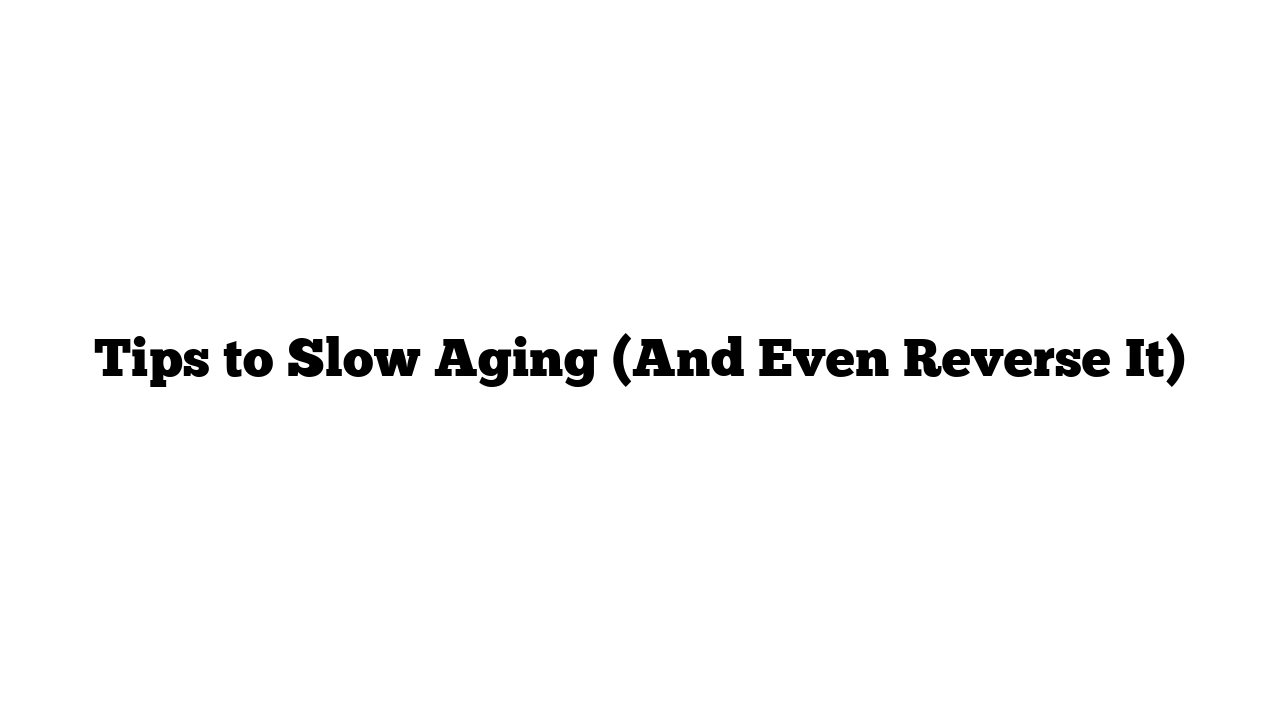Aging is a journey we all experience, but what if we could slow or even reverse its effects? According to leading experts like Dr. David Sinclair, aging is not just a natural inevitability but a condition that can be managed. Science is unveiling fascinating insights into the biology of aging, offering practical tools to enhance your health, extend your lifespan, and rejuvenate your body.
Let’s explore research-backed tips to combat aging and live a healthier, longer life.
1. Understanding Why We Age
Aging happens because our cells lose their ability to repair themselves over time. Factors like high insulin levels, chronic inflammation, and lifestyle choices accelerate this process.
Key Findings:
- Insulin and Aging: Elevated fasting blood sugar and insulin levels hasten aging by turning off genes responsible for longevity.
- Overeating and Aging: Constant eating prevents your body’s defense mechanisms, like the longevity genes (sirtuins), from activating.
“Skipping meals and maintaining low insulin levels help trigger the body’s repair mode, slowing the aging clock,” explains Dr. Sinclair.
2. Harnessing the Power of Fasting
Fasting, or going without food for specific periods, can be a game-changer in your anti-aging toolkit.
Benefits of Fasting:
- Activates longevity genes.
- Reduces cellular stress.
- Helps maintain optimal blood sugar levels.
Practical Tip:
- Skip one meal a day—either breakfast or dinner. This intermittent fasting method gives your body the needed break to repair itself.
Note: While fasting, ensure hydration with water, herbal teas, or light broths.
3. The Role of Diet in Longevity
It’s not just what you eat but also when you eat that matters.
Key Diet Tips:
- Eat nutrient-dense, whole foods rich in antioxidants (like leafy greens, berries, and nuts).
- Include foods high in resveratrol (found in red wine and grapes), which can activate longevity pathways.
- Balance your meals with proteins, healthy fats, and complex carbs.
4. Exercise for Youthful Energy
Exercise is essential for maintaining muscle mass, improving hormonal balance, and boosting your metabolism.
Recommendations:
- Aerobic Exercise: Activities like walking, running, or cycling raise NAD levels, crucial for cellular repair.
- Strength Training: Build muscle to combat the natural decline in muscle mass and testosterone with age.
“Regular exercise slows the ticking of your biological clock,” says Dr. Sinclair.
5. The Impact of Cold Exposure
Cold exposure, whether through ice baths, cold showers, or simply sleeping in a cooler environment, forces your body to adapt and burn energy.
Benefits:
- Encourages fat metabolism.
- Stimulates cellular repair mechanisms.
Quick Tip: Try sleeping in a slightly cooler room or wearing lighter clothing during colder months.
6. Longevity Supplements
While a healthy lifestyle is key, certain supplements may provide additional support.
Popular Choices:
- Resveratrol: Known for its anti-aging properties.
- Metformin: Originally used for type 2 diabetes, it mimics the effects of low energy in cells, enhancing longevity.
Important Note: Consult a healthcare provider before starting any supplements.
7. Why Obesity Speeds Up Aging
Excess fat tissue is linked to chronic inflammation, a key driver of aging. Obese individuals often have higher levels of senescent cells, which release harmful inflammatory molecules.
“Reducing fat content through diet and exercise is crucial for long-term health,” says Dr. Sinclair.
8. Modern Tools to Measure Aging
Advancements in biological testing allow individuals to track their health and biological age. Simple tests, like a mouth swab, can provide insights into your aging process and suggest ways to reverse it.
Dr. Sinclair envisions a future where biological age testing becomes as common as checking your credit score.
Practical Lifestyle Changes to Slow Aging
- Eat Mindfully: Opt for balanced meals and practice intermittent fasting.
- Stay Active: Prioritize strength training and cardio.
- Get Quality Sleep: Sleep cool and aim for 7–8 hours.
- Practice Cold Exposure: Use cold showers or cooler environments to boost your metabolism.
- Track Your Health: Consider biological age tests for personalized insights.
For more in-depth tips and guidance, visit medicaltimes.io.
Some FAQs About Aging
- What is aging?
Aging is the natural process where cells lose their ability to repair and regenerate over time. - Can aging be slowed?
Yes, lifestyle changes like fasting, exercise, and proper nutrition can slow aging. - What is intermittent fasting?
Intermittent fasting involves cycling between eating and fasting periods to improve cellular health. - Does exercise slow aging?
Absolutely. Regular exercise improves muscle mass, metabolism, and hormonal balance, all of which slow aging. - Are supplements necessary for anti-aging?
Not always, but supplements like resveratrol and metformin may provide additional benefits. - What foods fight aging?
Foods high in antioxidants, like berries, leafy greens, and nuts, combat oxidative stress. - What are senescent cells?
These are “zombie” cells that no longer function but release harmful molecules, speeding up aging. - How does cold exposure help?
It stimulates fat metabolism and cellular repair mechanisms. - What is biological age?
Biological age measures how old your cells are, which may differ from your chronological age. - Does fasting affect muscle mass?
No, fasting typically preserves muscle mass while promoting fat loss. - What is NAD?
NAD is a coenzyme vital for cellular repair and energy production. - How does obesity impact aging?
Obesity accelerates aging due to chronic inflammation and higher senescent cell levels.
